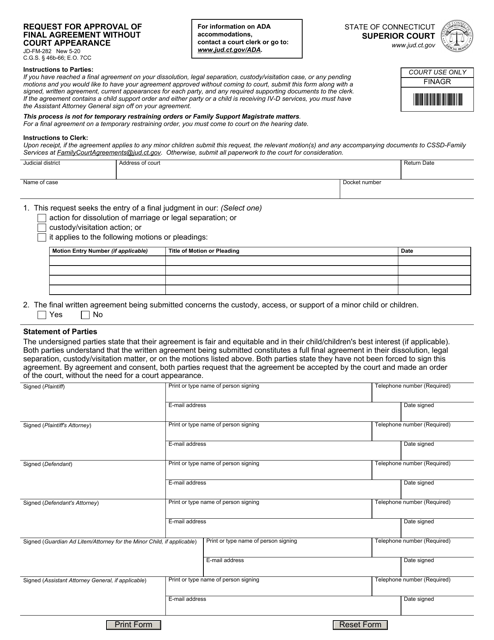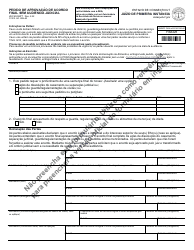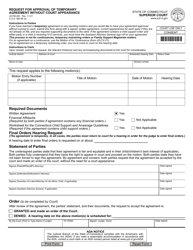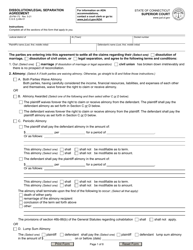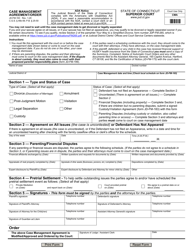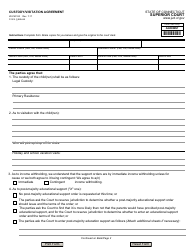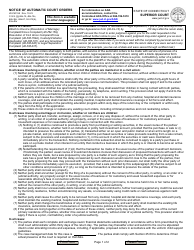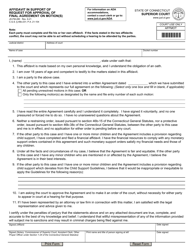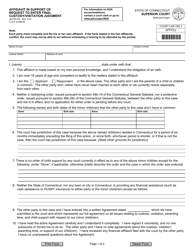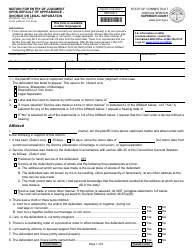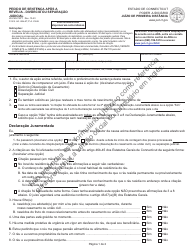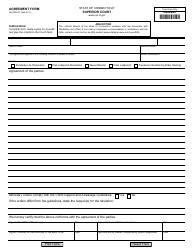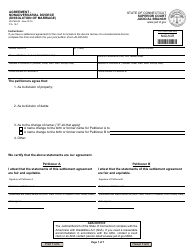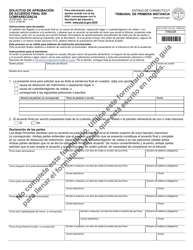This version of the form is not currently in use and is provided for reference only. Download this version of
Form JD-FM-282
for the current year.
Form JD-FM-282 Request for Approval of Final Agreement Without Court Appearance - Connecticut
What Is Form JD-FM-282?
This is a legal form that was released by the Connecticut Superior Court - a government authority operating within Connecticut. As of today, no separate filing guidelines for the form are provided by the issuing department.
FAQ
Q: What is Form JD-FM-282?
A: Form JD-FM-282 is a document used in Connecticut to request approval of a final agreement without a court appearance.
Q: Who can use Form JD-FM-282?
A: Form JD-FM-282 can be used by parties involved in a family law case in Connecticut who have reached a final agreement and wish to have it approved by the court without appearing in person.
Q: What is the purpose of Form JD-FM-282?
A: The purpose of Form JD-FM-282 is to request the court's approval of a final agreement in a family law case without the need for a court appearance.
Q: What information is required on Form JD-FM-282?
A: Form JD-FM-282 requires information about the case, the parties involved, and details of the final agreement reached.
Q: What happens after submitting Form JD-FM-282?
A: After submitting Form JD-FM-282, the court will review the final agreement and issue a decision regarding its approval or any necessary adjustments.
Q: Can I use Form JD-FM-282 in a case outside of Connecticut?
A: Form JD-FM-282 is specific to Connecticut and cannot be used in cases outside of the state.
Q: Do I need an attorney to use Form JD-FM-282?
A: Having an attorney is not mandatory to use Form JD-FM-282, but it is recommended to consult with one, especially in complex family law cases.
Q: How long does it take to receive a decision after submitting Form JD-FM-282?
A: The timeframe for receiving a decision after submitting Form JD-FM-282 may vary. It is best to check with the local courthouse or the Connecticut Judicial Branch for an estimate.
Form Details:
- Released on May 1, 2020;
- The latest edition provided by the Connecticut Superior Court;
- Easy to use and ready to print;
- Quick to customize;
- Compatible with most PDF-viewing applications;
- Fill out the form in our online filing application.
Download a fillable version of Form JD-FM-282 by clicking the link below or browse more documents and templates provided by the Connecticut Superior Court.
